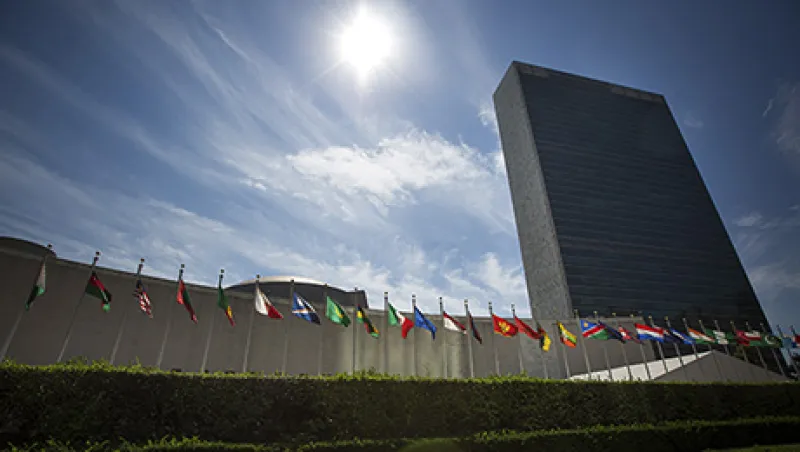
Flags fly outside the the United Nations (UN) headquarters in New York, U.S., on Wednesday, Aug. 5, 2015. The 70th UN General Assembly is scheduled to open in New York on Sept. 15. Photographer: Michael Nagle/Bloomberg
Michael Nagle/Bloomberg

Flags fly outside the the United Nations (UN) headquarters in New York, U.S., on Wednesday, Aug. 5, 2015. The 70th UN General Assembly is scheduled to open in New York on Sept. 15. Photographer: Michael Nagle/Bloomberg
Michael Nagle/Bloomberg